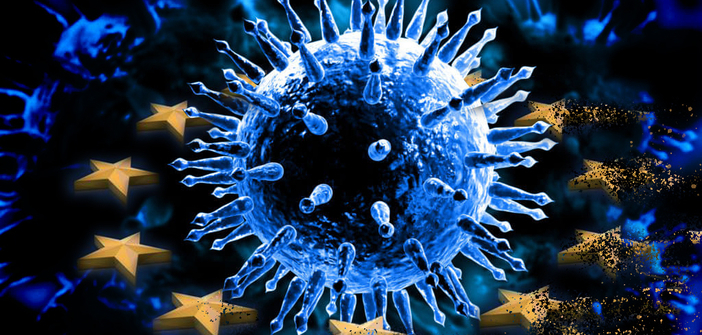The scheduled celebration of the 70th anniversary of the Schuman Declaration of May 9, 1950, will take place in a context marked by the magnitude of the health, economic, diplomatic, and political challenges that the European construction must face.
As the European Movement of Alpes-Maritimes, we reaffirm our belief that a strengthened Union remains the key to overcoming these challenges.
Which institution was able to mobilize €100 billion to support national short-time work schemes? It was the European Commission!
Which state managed to mobilize €750 billion in 3 or 4 days to stop the panic in financial markets? None alone, it was the European Central Bank that did it!
Which state could mobilize a recovery plan of nearly €1,500 billion for the post-health crisis, without abandoning the ecological transition? None alone, this is the principle on which the 27 member states, gathered in the European Council, have just agreed and tasked the European Commission to present it by May 6.
Faced with a global threat, the response can only match its scale. Once again, we realize that the state alone, confined within its narrow borders, cannot provide the adequate response.
And yet, despite these obvious facts, its member states had imprudently limited the competencies of the European Union in health matters to a minimum to preserve their choice of investment and national decision-making power in this domain! And today we are paying the price dearly.
Europe must therefore also be one of health.
Thus, despite an established framework on these competencies, coordination started to take place from the second half of March between the states. A series of solidarity actions was organized: the sending of masks and
volunteer doctors, or the cross-border reception of patients in hospitals, between Germany and France notably, and the repatriation of all Europeans stranded internationally. A specific European budget was allocated to medical research, along with the creation of a strategic reserve of equipment to prevent, in the future, shortages of masks and ventilators within countries.
Substantial additional aid supported African countries. Furthermore, it was also at the individual level, through messages and videos, that the European spirit was embodied, through expressions of friendship and support
between European citizens on social networks.
This major political ordeal revealed uncertainties and dysfunctions that must be corrected. In this regard, it is imperative that European leaders, who struggle to act in unison, strive to address this solidarity deficit by promoting a more coordinated, more unified, and more
bold Europe!
By striking in unison across all our countries, the deadly coronavirus crisis also opens the door to new horizons for Europeans: Let us be resilient, and fully play the European card to overcome this unprecedented crisis!
Odile MENOZZI
President of the European Movement of Alpes-Maritimes


